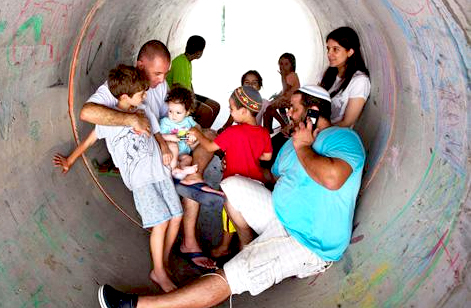 Gaza City/Palestinian Territories, Jul 11: Israeli warplanes kept up their deadly raids on Gaza Thursday but failed to prevent Hamas from firing rockets at Jerusalem, two of which struck near settlements in the West Bank.
Gaza City/Palestinian Territories, Jul 11: Israeli warplanes kept up their deadly raids on Gaza Thursday but failed to prevent Hamas from firing rockets at Jerusalem, two of which struck near settlements in the West Bank.
As the violence escalated, with more than 30 Palestinians killed on Thursday alone, UN chief Ban Ki-moon appealed for an immediate cease-fire at an emergency meeting of the Security Council.
“It is now more urgent than ever to try to find common ground for a return to calm and a cease-fire understanding,” he said as the Organization of Islamic Conference lobbied the UN for a crackdown on Israel.
Russian President Vladimir Putin issued a similar plea in a phone call to Israeli Prime Minister Benjamin Netanyahu, urging an immediate end to confrontation and expressing concern over civilian casualties.
And US Secretary of State John Kerry warned the region was facing “dangerous moment” after speaking to both Netanyahu and Palestinian president Mahmud Abbas.
But Israel appeared bent on dealing a fatal blow to Hamas, with Netanyahu reportedly saying talk of a cease-fire was “not even on the agenda.”
Hamas also appeared to have no interest in letting up, striking deep inside Israel over the past 48 hours, with rockets crashing down near Jerusalem and Tel Aviv and even as far away as Hadera, 116 kilometers (72 miles) to the north.
As sirens wailed across Jerusalem for the second time in two days, a series of loud explosions echoed across the city as the Iron Dome anti-missile system shot down two rockets fired from Gaza, the army said.
Another two crashed down in open areas in the occupied West Bank, one hitting near the Maaleh Adumim settlement and the other landing near Ofer, an Israeli military prison just west of Ramallah, causing no damage or injuries, witnesses and security officials told AFP.
Hamas fighters from Ezzedine Al-Qassam took responsibility, saying they had fired “four M75 rockets at Jerusalem.”





Comments
Add new comment